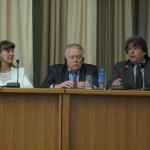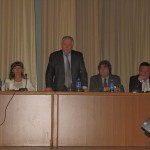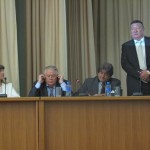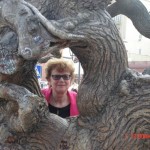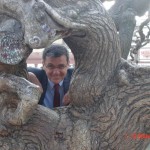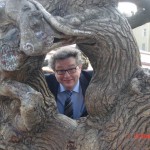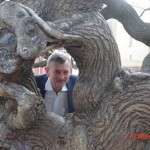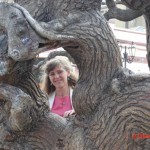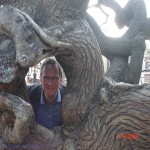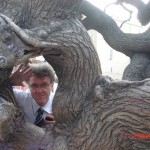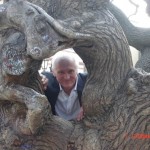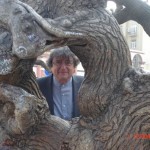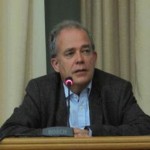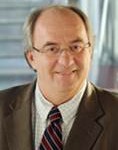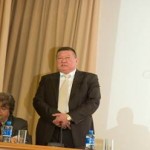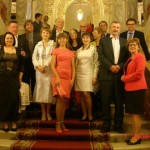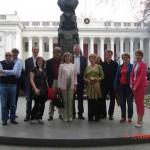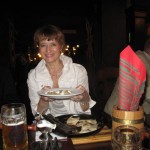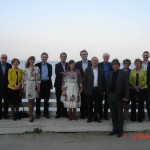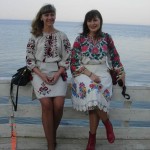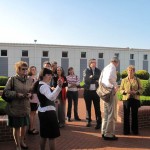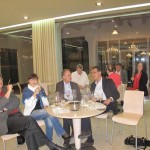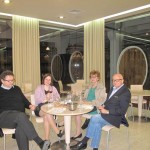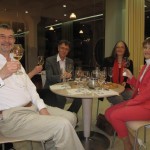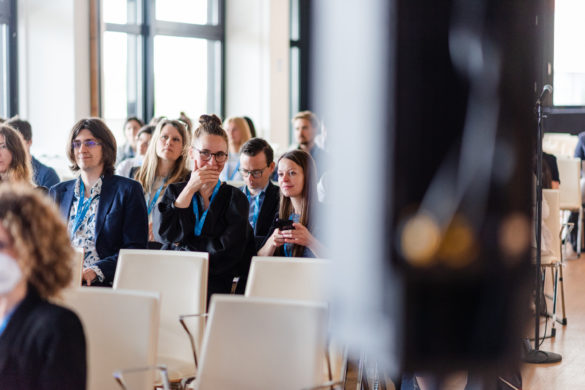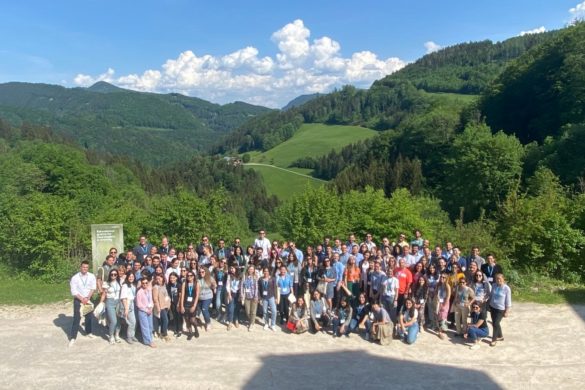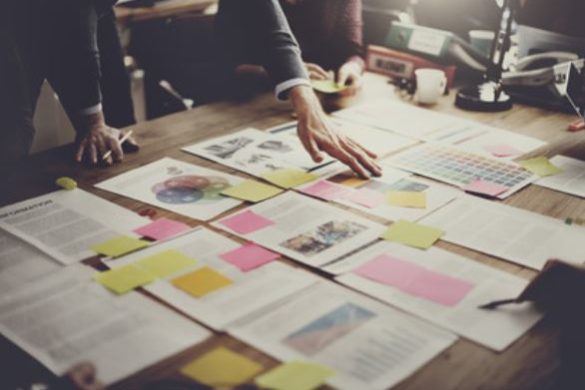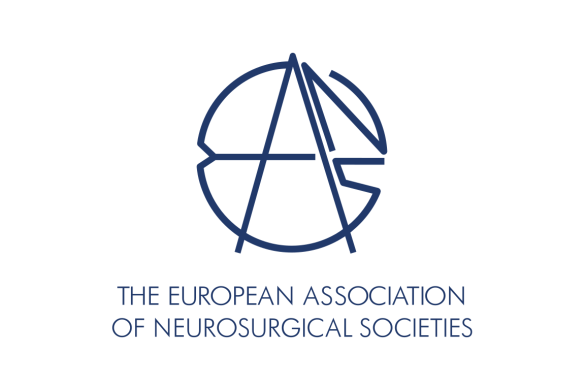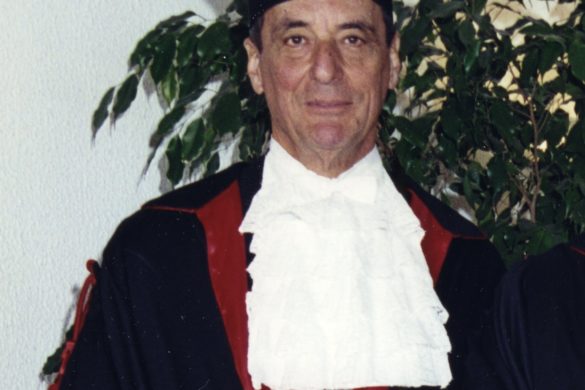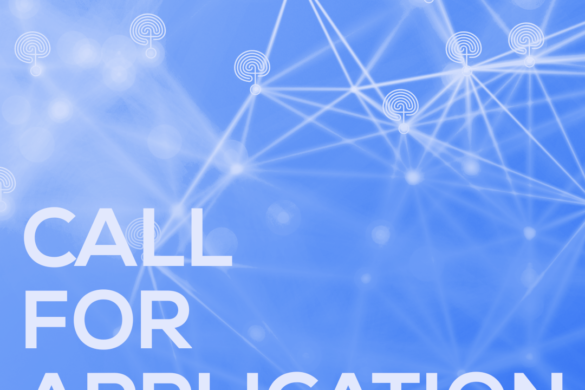by Liliia Zviagina
First of all I would like to thank the EFNS Head Office, Lisa Müller and Julia Mayer, the EFNS TC committee, especially Professor Detlef Kömpf, and all our invited speakers for their mutual support in organising the Regional Teaching Course in Odessa. A lot of letters, programme proposals, discussions and advice have been exchanged during the preparation. I am always amazed by the EFNS’ generous financial support to sponsor these events so that all participants could visit such courses for free.
This was the fourth RTC in Odessa, and again we had 10 of the best European lectors invited as speakers. They talked about neurorehabilitation, cognitive and gait disorders, stroke, neuropathy, eye movement disorders, etc. A course with such a high level of scientific and practical knowledge does not often happen in the Ukraine and called big interest and desire to visit our city. Since the time when our programme was ready and had been placed on the EFNS website we had a lot of applications from all parts of the Ukraine and our neighboring countries: Moldova, Russia, Belorussia, Georgia, and Azerbaijan. Finally, more than 300 doctors participated in the RTC in Odessa.
Each participant received a bag with information about the EFNS, its future events and all the material of the course including a CD with English syllabi of all the presentations.
On behalf of the EFNS and the local organising committee Professors Detlef Kömpf, Valentine Krusune, Anatoly Son and Liliia Zviagina addressed the welcoming words to all participants with focus on the importance of such RTCs, providing knowledge of European standards and giving learning opportunities to young doctors. As Professor Kömpf said: ”We are all living in different countries but we are speaking on one common language – the language of Neurology.” He underlined the importance of learning English, the language of all international scientific events, to be able to understand each other.
The first day was dedicated to field of Neurorehabilitation
Professor Klaus Jahn (Germany) described gait problems, which neurologists often are confronted with in their practice and which are associated with immobility and falls. He opened pathogenic aspects of such disorders, which are the “basic requirement for reasoned therapy” and showed different methods used in the diagnostic assessment of gait disturbances. The different treatment approaches including physiotherapy, medication, behavioural therapy, and, even surgery had been proposed. Also methods of training were demonstrated during his workshop.
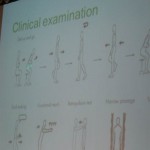
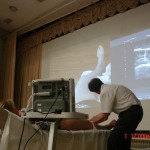
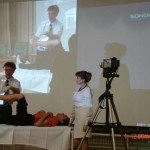
Professor Jörg Wissel (Germany) spoke about the management of spasticity; during his workshop he showed the practical aspects of using botulinum toxin according to sonography guidance. Invited patients were examined by Professor Wissel together with the participants. The doctors could try out the procedure under Professor Wissel’s guidance.
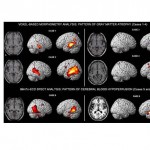 Professor Stefano Cappa (Italy) discussed rehabilitation of linguistic aspects of aphasia, with a special emphasis on the neurological correlations of specific aspects of language impairment. He taught us the diagnosis of unusual neuropsychological features and cognitive studies of memory disorders in dementia, as well as the application of functional imaging methods (positron emission tomography, functional magnetic resonance) for the study of cognitive function (in particular language and semantic memory). Neuroplasticity and approaches to aphasia therapy were presented during his workshop. He also showed us that intensive training is beneficial for patients with aphasia.
Professor Stefano Cappa (Italy) discussed rehabilitation of linguistic aspects of aphasia, with a special emphasis on the neurological correlations of specific aspects of language impairment. He taught us the diagnosis of unusual neuropsychological features and cognitive studies of memory disorders in dementia, as well as the application of functional imaging methods (positron emission tomography, functional magnetic resonance) for the study of cognitive function (in particular language and semantic memory). Neuroplasticity and approaches to aphasia therapy were presented during his workshop. He also showed us that intensive training is beneficial for patients with aphasia.
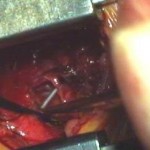 Professor Anatoly Son (Ukraine) showed neurosurgical approaches to treat lumbago, and the effect of kinesiotherapy after lumbar microdiscectory.
Professor Anatoly Son (Ukraine) showed neurosurgical approaches to treat lumbago, and the effect of kinesiotherapy after lumbar microdiscectory.
We also had a speaker from the EAYNT visiting Odessa, Xenia Kobeleva (Germany), who gave practical information on the young neurologists’ activities. She informed our young neurologists on how to improve their training and promoted clinical and scientific exchange in European countries.
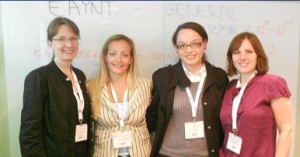
The second day was dedicated to cognitive disorders.
Professor Martin Rossor (UK) described major dementia syndromes with video presentation and opened the door to new treatment of dementia. 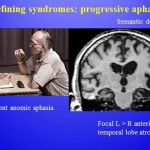
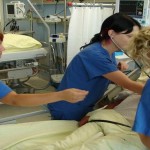 Michael Brainin (Austria) emphasised the necessity of treating stroke patients in a multi-disciplinary stroke unit. Questions about perspectives and treatment options of post-stroke cognitive deterioration were discussed during his workshop.
Michael Brainin (Austria) emphasised the necessity of treating stroke patients in a multi-disciplinary stroke unit. Questions about perspectives and treatment options of post-stroke cognitive deterioration were discussed during his workshop.
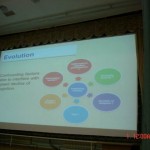
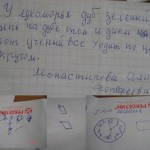 Gilles Defer (France) talked about cognitive dysfunctions and patients with MS, described all specificities of such disturbances and methods of rehabilitation.
Gilles Defer (France) talked about cognitive dysfunctions and patients with MS, described all specificities of such disturbances and methods of rehabilitation.
Liliia Zviagina (Ukraine) provided methods of non-drug rehabilitation of post-stroke cognitive impairment.
On the third day various neurological topics were presented.
An excellent talk about the diagnosis of eye movement disorders with video slides was held by Professor Detlef Kömpf (Germany). He demonstrated many cases and presented some methods to treat vertigo. 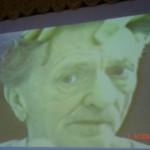
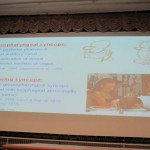 Big interest was called by the lecture of Professor Max Hilz (Germany) Differential diagnosis of syncope and seizure. He presented video material and cases, and gave information on how to diagnose and prevent syncope.
Big interest was called by the lecture of Professor Max Hilz (Germany) Differential diagnosis of syncope and seizure. He presented video material and cases, and gave information on how to diagnose and prevent syncope.
Professor Jean-Marc Léger (France) described differential diagnosis of neuropathies and the management of such disorders.
Professor Anna Czlonkowska (Poland) gave an update on pharmacotherapy during the rehabilitation period of stroke patients.
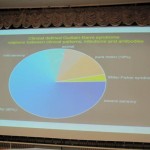
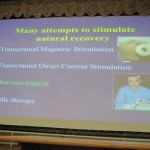
The entire programme was tough, but there was a lot of information which the professors wanted to pass on, so we used every free minute. Professor Max Hilz even arranged a scientific lunch where he introduced telemedicine.
All lectors avoided a conflict of interests with the pharmaceutical industry according to the request of the EFNS. We thank all our partners, who helped and arranged for participants to come to Odessa. Separately from the main programme, satellite symposia had been arranged. Our guests, Professors Jerzy Krupinski (Spain), Ingmar Skoog (Sweden), Jaime Kulisevsky Bojarski (Spain), Vladimir Golic, Slobodyan Tatyana and Angelika Paenok (Ukraine), showed results of their own expertise. During the breaks the participants could inform themselves about new pharmaceutical approaches while visiting the small exhibition area arranged by the orgnisers.
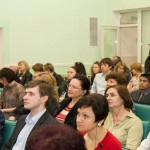
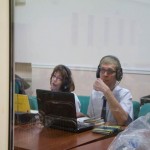
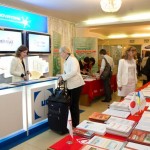
I would like to express my admiration to the quality of the simultaneous translation. Invited interpreters did an immense work during the preparation of the RTC. All lectures had been studied before to be able to help our participants to properly understand the professors. That is why more than 50% of the participants passed the exam successfully, and got special certificates. Everybody got a certificate of attendance after the course.
Of course I would like to thank Vladimir Kolodenko, director of the hotel complex Belaya Acacia. It is a modern comfortable sanatorium located on the coast of the Black Sea in Odessa, having a perfect clinical base for diagnostics and recovery treatment. He and his colleagues had been responsible for the stay of our guests, equipment facilities, conference rooms, transportations.
We arranged a rich cultural programme for the facutly and the participants. Every day professors who were not involved in the lectures had possibilities to see Odessa. For all participants we organised a visit to our treasure, the Odessa Opera and Ballet Theater, where we showed the ballet of Tchaikovsky “Sleeping beauty”. Our guests also had the opportunity to get acquainted with Ukrainian national folk dance, songs and food.
We visited Shabo, the famous town of wine production, situated at the Dniester Liman. The Tatar village was established around 1500, when it was called Acha-abag: “the lower vineyards”. In 1822, Alexander I decided to re-populate the region by inviting Swiss settlers of Vaud who came to cultivate the vineyards of Shabo, and Shabo wine remains famous for its quality to the present time.
According to the opinion of the faculty the course was a big success. Our neurologists said that such RTCs are a window to Western knowledge. Our positive experience in the past attracted many participants; some of them came to Odessa for the second, third, even fourth time since 2005. As such, the RTC provides an excellent opportunity for many neurologists, neurosurgeons, epidemiologists, neuropsychologists, rehabilitation specialists, geriatricians, specialists and health care providers working in the area of neurological disorders to share their new ideas, research findings and experience.
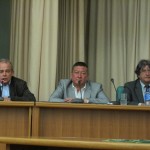
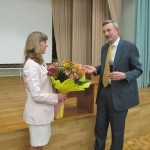
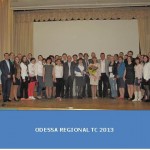
For one year and a half we had prepared the RTC, but the three days passed like one moment. I was so happy to spend my time with such intelligent and nice people. I am very sad that this was the last EFNS RTC in Odessa, but at the same time I want to express my big hope that such activities will be continued in the frame of the new EAN and put all my energy and strength to this future prospect.
Liliia Zviagina works as a neurologist at the Department of Neurology at the Regional Medical Center in Odessa, Ukraine.

